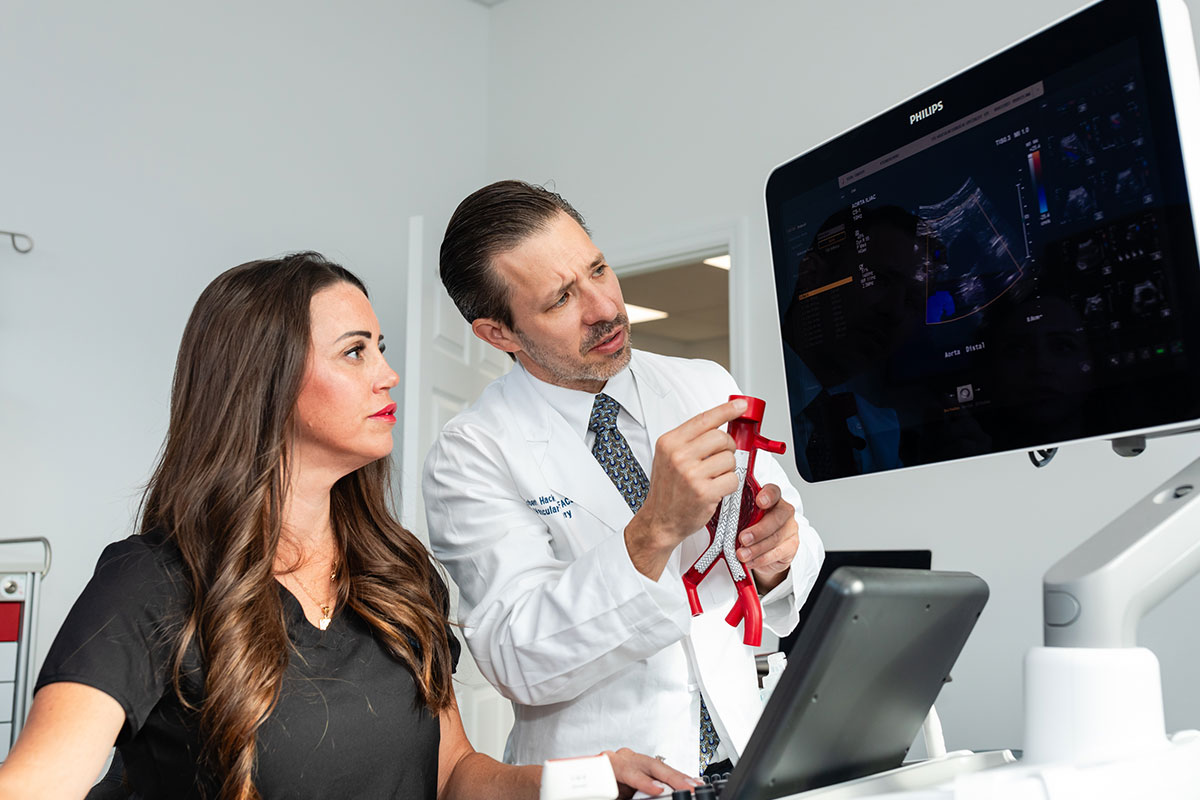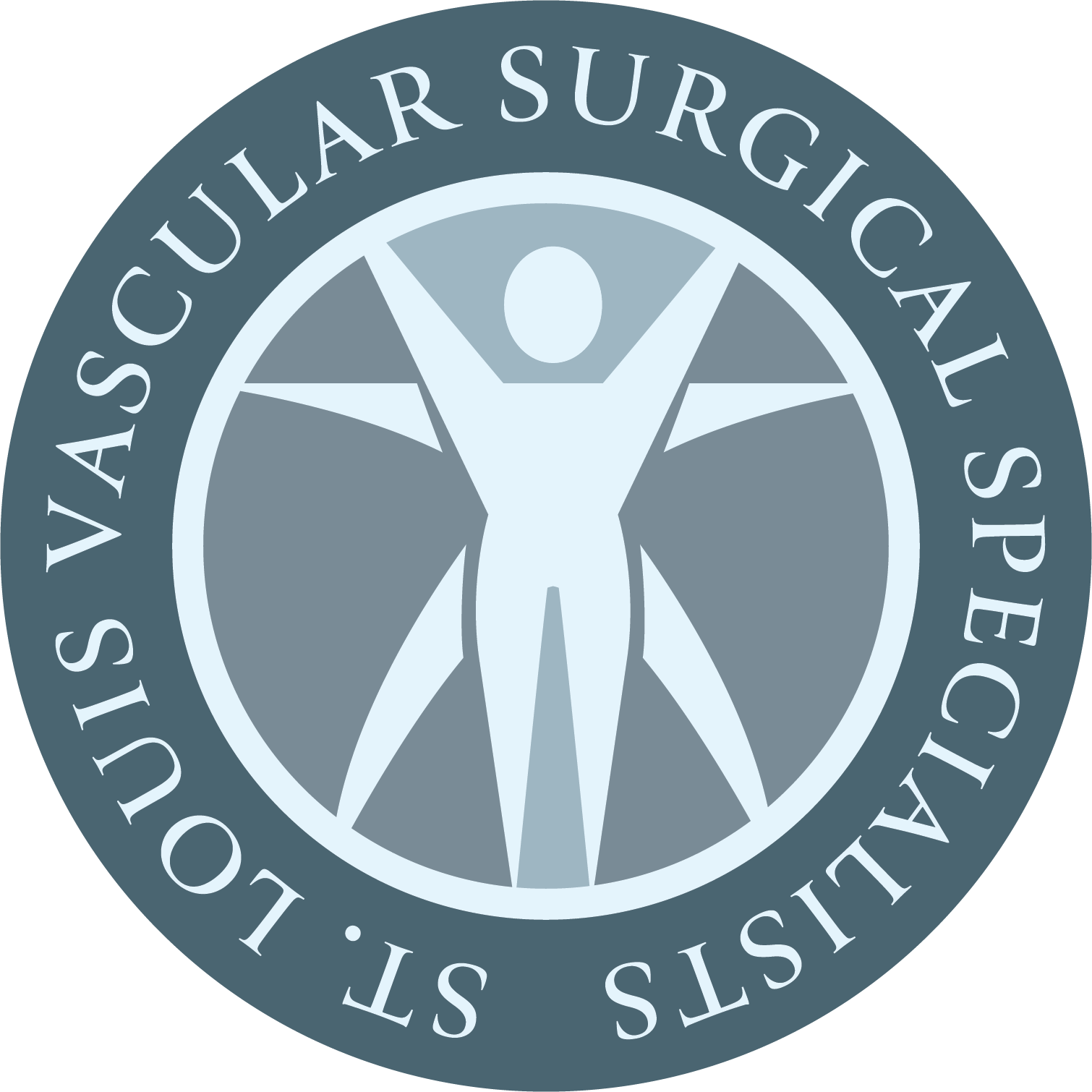Vascular health is crucial for overall well-being as it encompasses the intricate network of arteries, veins, and lymphatic vessels that circulate blood and nutrients throughout the body. Maintaining optimal vascular health is essential for preventing conditions like heart disease, stroke, and peripheral artery disease. Dr. Hacker offers cutting-edge diagnostic tests and treatments to address your vascular conditions and restore optimal health.
The vascular system: an overview
The vascular system, comprising arteries, veins, and capillaries, forms an intricate network responsible for transporting blood, oxygen, and nutrients throughout the body. Arteries carry oxygen-rich blood away from the heart to organs and tissues, while veins return oxygen-depleted blood back to the heart for reoxygenation. Capillaries facilitate the exchange of gasses, nutrients, and waste products between the bloodstream and surrounding tissues.
This continuous circulation supports cellular functions, sustains organ viability, and maintains homeostasis. Key to vascular health is the endothelium, which regulates vascular tone, blood clotting, and immune response, which are crucial for preventing atherosclerosis and thrombosis. Dysfunction in this endothelial layer can contribute to numerous vascular diseases, such as coronary artery disease and peripheral artery disease.

Potential symptoms of vascular conditions:
- Chest pain or discomfort
- Shortness of breath, especially during physical activity
- Leg pain or cramping, particularly during exercise
- Swelling, warmth, or discoloration in the extremities
- Numbness or weakness in limbs
- Changes in vision, such as blurriness or sudden loss
- Difficulty speaking or understanding speech
- Cold hands or feet due to reduced circulation
Some of the most common vascular conditions:
- Atherosclerosis: Narrowing and hardening of arteries due to plaque buildup, leading to reduced blood flow and potential blockages.
- Peripheral artery disease (PAD): Narrowing of arteries outside of the heart, commonly affecting the legs, leading to decreased circulation and leg pain during activity.
- Coronary artery disease (CAD): Buildup of plaque in the coronary arteries, restricting blood flow to the heart, potentially causing chest pain (angina) or heart attack.
- Deep vein thrombosis (DVT): Formation of blood clots in deep veins, often in the legs, which can lead to swelling, pain, and life-threatening complications like a pulmonary embolism.
- Stroke: Disruption of blood flow to the brain, either due to a blockage (ischemic stroke) or bleeding (hemorrhagic stroke), resulting in neurological deficits.
- Varicose veins: Enlarged, twisted veins, typically in the legs, caused by weakened valves and increased pressure, leading to discomfort, swelling, and cosmetic concerns.
- Hypertension: Chronic elevation of blood pressure, increasing the risk of vascular damage and complications such as heart disease, stroke, and kidney failure.
- Venous insufficiency: Impaired function of the veins, often in the legs, resulting in pooling of blood, swelling, and skin changes such as discoloration or ulcers.
Vascular imaging tests offered at SVSS:
- Carotid duplex: Ultrasound examination to assess blood flow in the carotid arteries, detecting blockages or narrowing that could increase stroke risk.
- Arterial doppler: Non-invasive ultrasound used to evaluate blood flow in arteries, detecting blockages, narrowing, or abnormalities in circulation.
- Abdominal vascular duplex: Ultrasound examination of abdominal blood vessels, including the aorta, to assess for aneurysms, blockages, or other abnormalities.
- Venous duplex: Ultrasound imaging to evaluate blood flow in veins, aiding in the diagnosis of deep vein thrombosis, venous insufficiency, or varicose veins.
- Hemodialysis access and maintenance: Evaluation and management of vascular access sites for hemodialysis, including arteriovenous fistulas or central venous catheters.
- Vascular screenings: Comprehensive assessments for individuals at risk of vascular diseases, including peripheral artery disease, stroke, or venous disorders.

Personalized vascular treatments at SVSS
At St. Louis Vascular Surgical Specialists, you can expect personalized vascular treatments tailored to your specific needs and medical history. Dr. Hacker and our team of specialists will collaborate with you to develop a treatment plan that addresses your vascular condition effectively. Whether you require minimally invasive procedures or surgical interventions, we provide the highest quality of care while prioritizing your comfort and well-being.
Dr. Hacker utilizes advanced techniques such as endovascular therapy, angioplasty, stent placement, and vascular bypass surgery to restore blood flow, alleviate symptoms, and improve overall vascular health. We focus on patient-centered care and ensure you are well informed and supported throughout your treatment. Our goal is to optimize your vascular function, enhance your quality of life, and empower you to make informed decisions about your health.
Schedule your consultation with Dr. Hacker
St. Louis Vascular Surgical Specialists is your state-of-the-art medical center for expert vascular care led by Dr. Robert Hacker, a double-board-certified general and vascular surgeon. Dr. Hacker ensures every patient receives personalized attention, treating them not just as patients but as members of our extended family. As a registered physician for vascular interpretation (RPVI), Dr. Hacker always identifies and treats the root causes of your vascular conditions. Schedule your consultation today to achieve improved vascular health and well-being.
